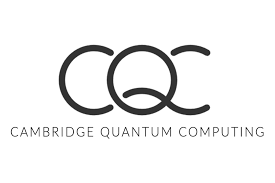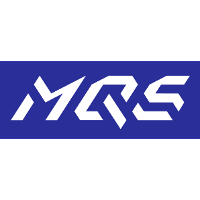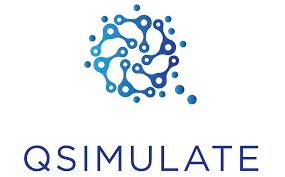
Protein-Ligand Interactions
If the COVID-19 pandemic has told us anything, it is that the pharmaceutical industry — whatever the many detractors and conspiracy theorists say to belittle it — is a crucial aspect of our lives. With developmental costs climbing and drug trials a lot of the time hit and miss, the movers and shakers in the industry are under constant pressure to deliver. And although it is a profit-driven sector, I’m sure they want to deliver the best drugs that they can. Scenarios like the Coronavirus pandemic and others sure to arrive in the future will only place more pressure for better but cheaper drugs on the pharmaceutical companies.
See also: 5 Crucial Quantum Computing Applications & Examples
And for the most part, you wouldn’t believe it’s all about academic research and the pharmaceutical industry’s attempt — through the technology of computational chemistry — at finding a molecule that binds to a target protein using in silico tools.
Yet for all our medical advances in the 20th and early 21st century, the complexity that can arise from protein–ligand interactions is still one with many challenges.

But there may be a knight in shining armour to these drug–protein interaction complexity problems: quantum mechanics (QM). In view of this, a handful of startups have formed that use the magic of the very small to improve macro issues:
1.Aqemia

Aqemia is a French in silicon drug discovery start-up that strives to discover more innovative therapeutic molecules via the power of deep physics and AI.
Visit company’s profile page.
2.Cambridge Quantum Computing (CQC)

The British company CQC’s EUMEN offering is a “complete package to facilitate the design of pharmaceuticals, speciality chemicals, performance materials and agrochemicals”.
Visit company’s profile page.
3.HQS Quantum Simulations

This German startup HQS “provides software for material scientists in the chemical industry and academia that incorporates sophisticated quantum-level models of the properties of molecules and materials”.
Visit company’s profile page.
4.Molecular Quantum Solutions (MQS)

“Danish startup MQS “provides computational tools to accelerate research & development efforts by the pharma, biotech and chemical industry”.
Visit company’s profile page.
5.NetraMark

Toronto-based startup NetraMark “combines proprietary QML/ML algorithms with cross-domain expertise to bring ML commercialization into reality, starting with the pharmaceutical space in drug development, resurrection, and disease definition”.
Visit company’s profile page.
6.ODE, L3C

US-based social enterprise ODE is solving non-deterministic polynomial-time hardness chemistry problems with quantum algorithms.
Visit company’s profile page.
7.POLARISqb

US-based startup Polarisqb is utilizing QC, AI, ML and personalized medicine to revolutionize drug design.
Visit company’s profile page.
8.QSimulate

QSimulate, a US-based startup, enables “quantum simulations to solve pressing problems in the pharmaceutical and chemistry spaces”.
Visit company’s profile page.
9.Qubit Pharmaceuticals

A French startup whose headquarters are in Paris, Qubit Pharmaceuticals is accelerating “drug discovery with quantum physics and high-performance computing”.
Visit company’s profile page.
10.Zapata Computing

Along with CQC as one of the more high-profile companies, US-based Zapata Computing is “developing solutions for a wide range of industries including chemistry”.
All of these ten companies are looking to transform drug discovery through quantum mechanics, and many are already seeing results.
Another whose IP is to solving real-world problems in this way is CreativeQuantum, a company founded in Berlin, Germany in 2010 by Marek Checinski, Alexander Kulesza and Johannes Israel.
Visit company’s profile page.
11.CreativeQuantum

Specializing in the “realization of quantum mechanics-based research and development for the chemical and pharmaceutical industries” through the analysis and optimization of chemical synthesis and processes by using AI and evolutionary optimizations, the CreativeQuantum team has years of research behind it from the Humboldt University Berlin, University of Potsdam and the Leibniz Institute for Catalysis. Supported by an advisory board of experienced managers from industry and world-renowned researchers, the company’s interdisciplinary scientific team offers advanced atom-based simulations as part of their quantum chemistry-based services.
Visit company’s profile page.
CEO of CreativeQuantum is Marek Checinski, who has a Ph.D. from the Leibniz Institute for Catalysis.
Alexander Kulesza, who is the company’s former CTO, gained his Ph.D. in biomodelling and simulation from Humboldt University, Berlin.
Leaving CreativeQuantum in 2011, Johannes Israel has a Ph.D. in physics from Brandenburgische Technische Universität Cottbus-Senftenberg.
With Checinski running the ship these days, CreativeQuantum joins a small group of companies whose goals for drug discovery are aligned. And as we move further into the decade, quantum mechanics will no doubt play are more crucial role as players like CreativeQuantum, CQC and Zapata make their mark on the pharmaceutical industry and human health outcomes.
Have we missed any out or got something wrong? If so, don’t hesitate to contact us at hello@thequantuminsider.com
The Quantum Insider (TQI)

Just in case this list hasn’t satisfied your cravings for knowledge in the quantum chemistry and drug discovery industry, you can check out The Quantum Insider (TQI), TQD’s very own data platform, where you can find deep and insightful information on all aspects of quantum technologies.
If you want to find out what’s new in the Industry, check out our latest quantum news.
TQI is an invaluable resource for journalists, researchers, investors, companies, and government agencies looking to extend their knowledge of the growing quantum tech ecosystem!















